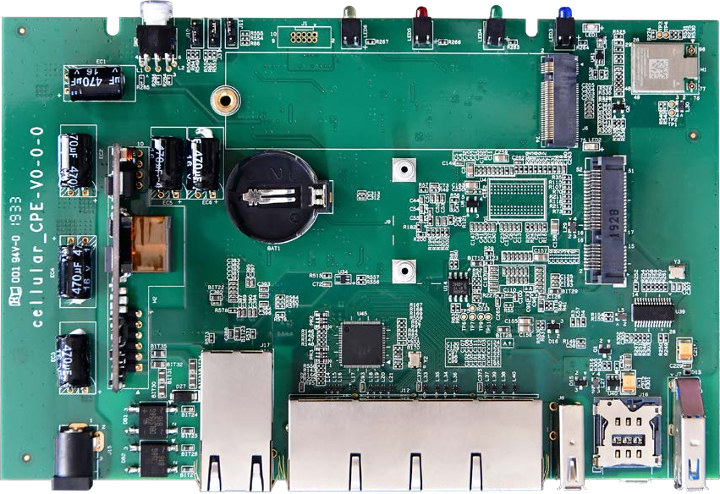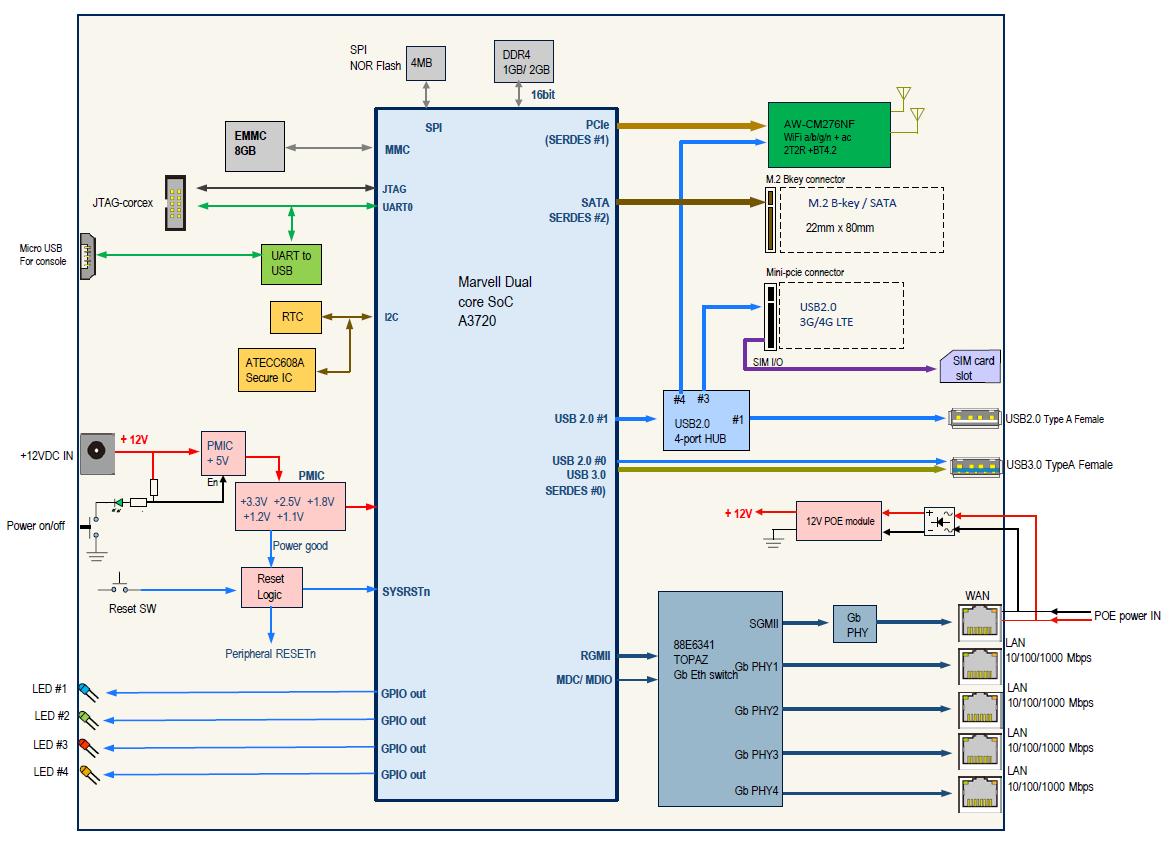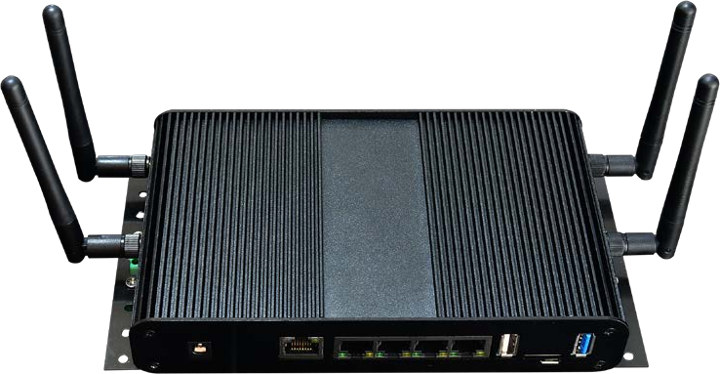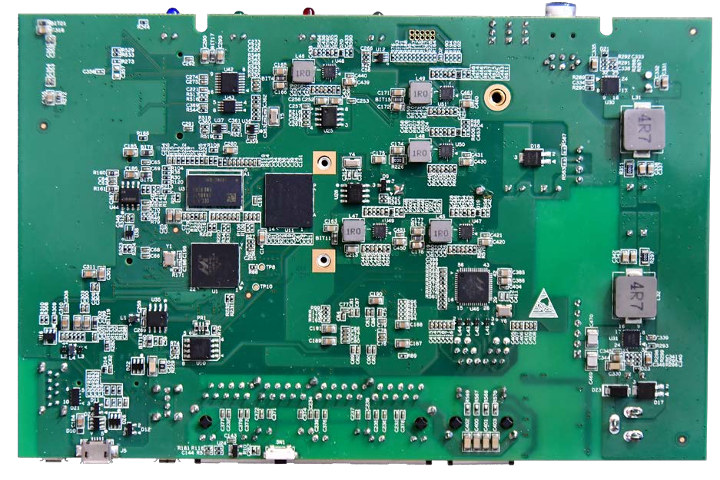Marvell ESPRESSOBin networking board launched in 2016 for as little as $39 with an Armada 3700LP (88F3720) dual-core Arm Cortex A53 processor, up to 1GB RAM, three Gigabit Ethernet ports, SATA, and a mPCIe slot for wireless connectivity.
Globalscale Technologies is now back with ESPRESSOBin ULTRA with a similar base but more features, a metal enclosure, and a much higher price point.
ESPRESSOBin ULTRA specifications:
- SoC – Marvell Armada 3720 dual-core Arm A53 processor clocked up to 1.2 GHz with packet accelerator
- System Memory – 1GB DDR4 (option up to 2GB)
- Storage – 8GB eMMC flash, 4Mbit SPI NOR flash, 1x M.2 2280 slot for SATA SSD
- Connectivity
- Switch – Marvell Topaz 6341 (88E6341) Networking Switch
- 1x GbE WAN with 30W POE
- 4x Gigabit Ethernet ports (LAN)
- 802.11ac Wi-Fi 5 2×2 MIMO module + Bluetooth 4.2
- Optional 4G LTE cellular connectivity via mini PCIe and NanoSIM card slot
- USB – 1x USB 3.0 port, 1x USB 2.0 port
- Expansion
- 1x M.2 2280 B-key slot for SATA drives
- 1x mPCIe slot (USB 2.0) for 3G/4G cellular modem
- Debugging – 1x micro USB UART for serial console, 10-pin JTAG connector
- Misc – RTC Clock and battery, power & reset buttons, 4x user LED’s, ATECC608A secure IC
- Power Supply – 12V via DC Jack or PoE
- Dimensions – 185 x 112 x 35mm
- Weight – 635 grams

The ESPRESSOBin ULTRA 1 unit ships with two WiFi/Bt antennas, a micro USB to USB cable for debugging and a warranty card by default. Optional accessories include a 12V/2A power adapter and two wall-mount DIN rail hooks.
The unit will ship with an updated 4.19 mainline Linux with integrated wireless and networking drivers. There’s no Wiki at this time, but I suppose many of the resources and documentation for its little brother (ESPRESSOBin) may be re-used. The Wiki has documentation for up to Linux 4.14 though, and searches for Linux 4.19 support point me to Armbian instead.
Globalscale ESPRESSOBin ULTRA is scheduled to ship in March 2020, but the company is already taking pre-orders for $159 or $169 with the DIN rail mount. You’ll find more details and the purchase link on the product page.

Thanks to Willy for the tip!

Jean-Luc started CNX Software in 2010 as a part-time endeavor, before quitting his job as a software engineering manager, and starting to write daily news, and reviews full time later in 2011.
Support CNX Software! Donate via cryptocurrencies, become a Patron on Patreon, or purchase goods on Amazon or Aliexpress





